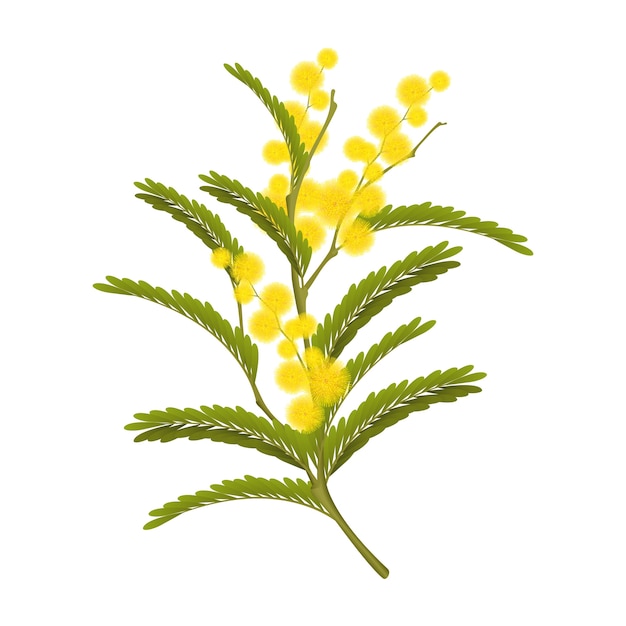St. John’s Wort Quick Facts
Scientific Name: Hypericum perforatum
Family: Hypericaceae
Origin: Europe and Asia
Plant Type: Flowering, Perennial
Health Benefits: Supports Mental Wellness, Women’s Health, and Healthy Skin
History of St. John’s Wort
St. John’s wort has a rich history filled with superstition and folklore due to its mood-enhancing properties. In ancient Greece, people would hang the plant over religious icons to ward off evil spirits. Greek herbalists also used it to create tinctures for treating cuts, burns, infections, and even snakebites.
Early American settlers continued these mystical traditions, often incorporating the plant into door wreaths to repel unfriendly spirits. They also believed that placing the herb in the mouth of a suspected witch would force a confession. Today, the superstitions have faded, and we understand that the plant’s mood-altering effects are due to its nutritional components.
St. John’s Wort and Depression
St. John’s wort has shown potential in alleviating symptoms of depression, which can manifest as persistent feelings of extreme unhappiness and affect sleep, appetite, energy, cognitive function, and the immune system. Depression is often linked to a chemical imbalance in the brain.
Selective serotonin reuptake inhibitors (SSRIs) are commonly prescribed antidepressants that work by increasing serotonin levels in the brain. Unlike SSRIs, St. John’s wort inhibits the reuptake of all neurotransmitters, including monoamines, dopamine, noradrenaline, GABA, and glutamate, making them more available.
Nearly 30 international studies have found that St. John’s wort is more effective than a placebo for mild to moderate depression. However, it is less effective for severe depression. Many European doctors recommend it for mild to moderate depression, and it is also a popular natural remedy in North America.
St. John’s Wort and PMS
Over 80 percent of women in the United States experience premenstrual syndrome (PMS), which includes symptoms like headaches, bloating, and fatigue. More severe symptoms may indicate premenstrual dysphoric disorder (PMDD), which includes depression, mood swings, and anxiety.
A double-blind, placebo-controlled trial found that St. John’s wort effectively improved physical and behavioral symptoms associated with PMS. However, it did not significantly affect more severe symptoms like anxiety, depression, aggression, and impulsivity. Further research is needed to determine the long-term benefits of St. John’s wort for PMS or PMDD.
St. John’s Wort and Menopause
Menopause, occurring in women around ages 48 to 55, is associated with a natural decrease in reproductive hormones. Symptoms include hot flashes, sleep disruption, moodiness, and reduced sex drive. St. John’s wort may help alleviate some of these symptoms.
Women reported a decrease in the severity, frequency, and duration of hot flashes after taking St. John’s wort extract daily for eight weeks. Another group of women aged 43 to 65 reported improvements in sexual well-being after taking the extract.
Other Benefits of St. John’s Wort
St. John’s wort has been studied for its effects on anxiety, stress, seasonal affective disorder (SAD), and obsessive-compulsive disorder (OCD). Its antioxidant properties may also make it an effective neuroprotective agent.
In ICU patients, St. John’s wort encouraged wound healing over a month. Its soothing action and resistance to harmful organisms may explain its ability to promote healthy skin.
St. John’s Wort Supplements and Tea
St. John’s wort is available in various forms, including pills, powders, and liquids. While carefully measured extracts ensure potency, you can also make tea with fresh flowers from the plant. To make St. John’s wort tea, steep a handful of flowers in hot water for four minutes and strain.
I recommend a supplement like Stress Relief, which combines St. John’s wort with other natural remedies for mood and mental vitality. Stress Relief also contains lithium orotate, Mucuna pruriens with 15 percent L-dopa, Rhodiola rosea, Bacopa monnieri, and other herbs.
St. John’s Wort Side Effects and Precautions
St. John’s wort can interact with prescription medications, reducing the effectiveness of birth control pills, heart medication, and some HIV and cancer drugs. Side effects are rare but can include dry mouth, upset stomach, increased sensitivity to light, and increased feelings of anxiety. Pregnant or nursing women and children should not use it without guidance from a trusted healthcare advisor.
Alternative Approaches to Mental Health
There are many natural alternatives to support mental wellness. Nutritional approaches can significantly impact how you look and feel. Consuming whole, organic, and nutritious foods supports a positive mental state. Daily exercise, like yoga or walking, is highly effective for physical and mental health. Regardless of your physical condition, adequate sleep and daily meditation can help relieve anxiety, boost mood, and clear the mind.

